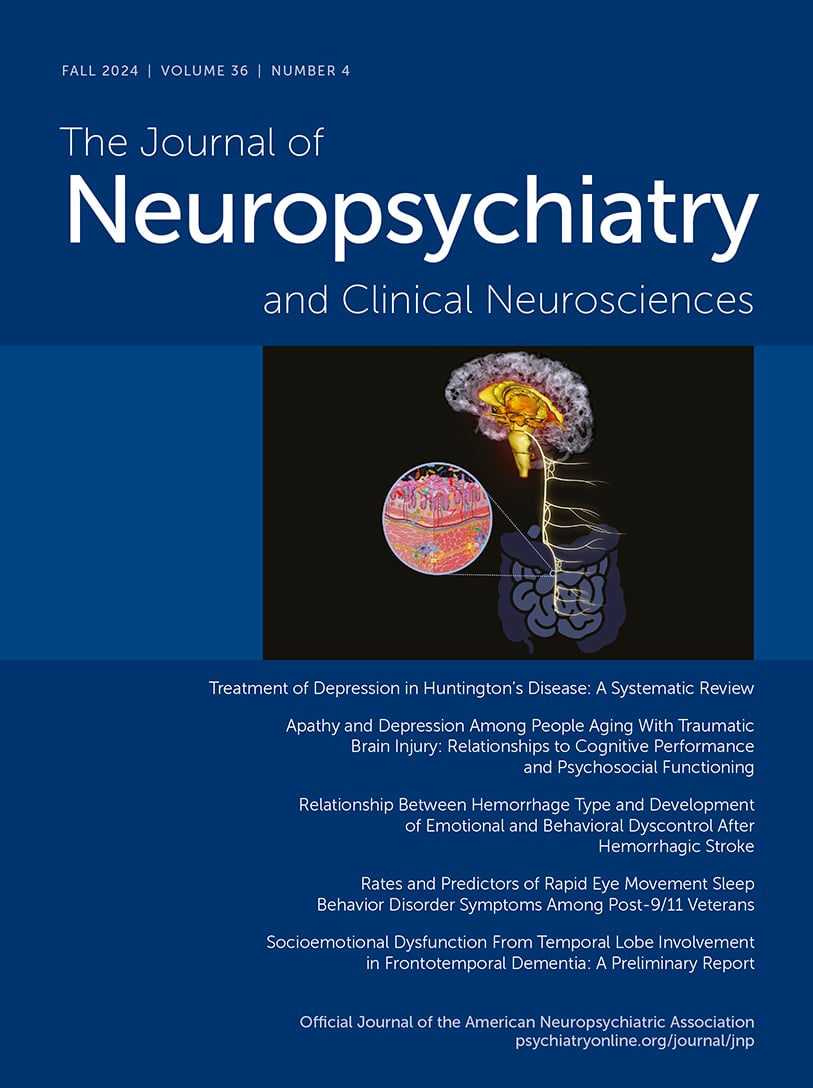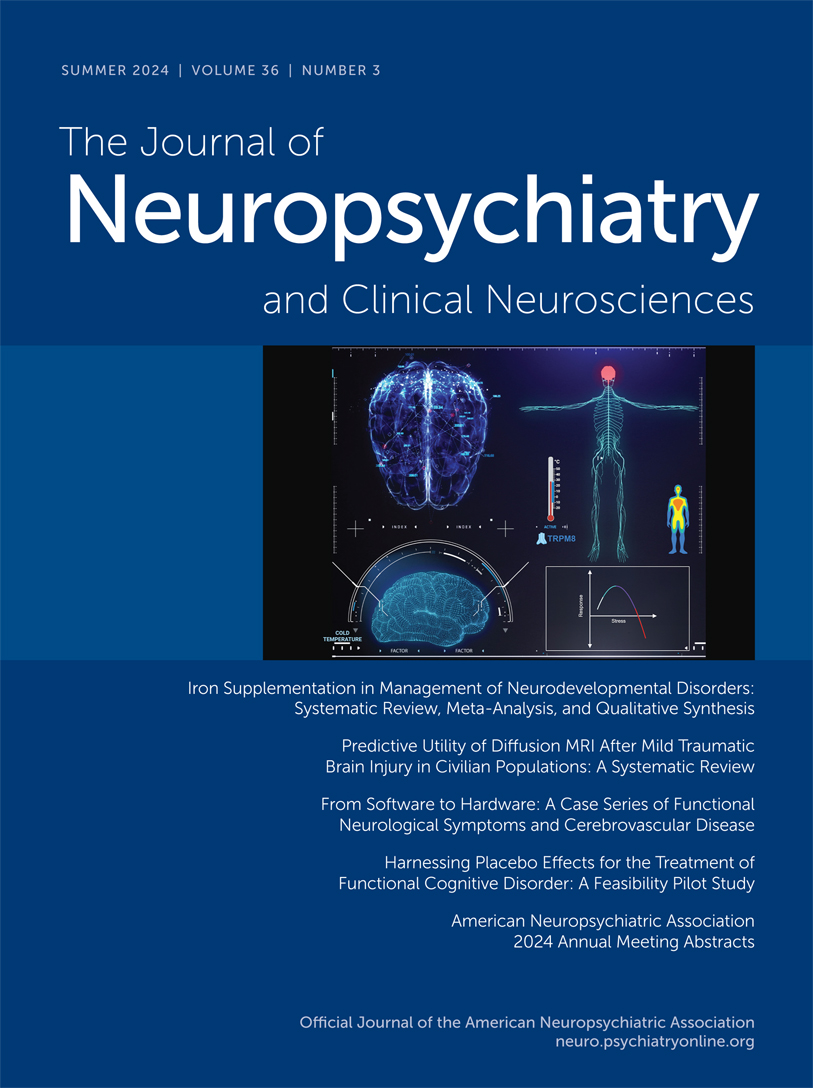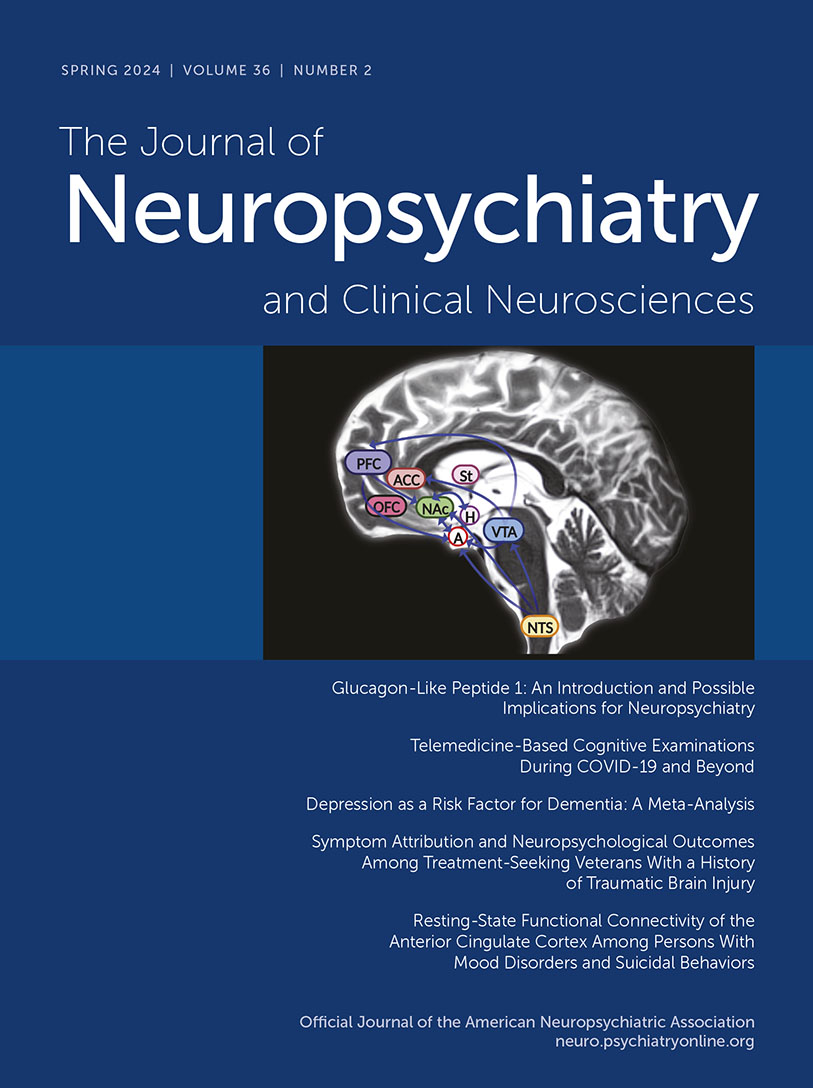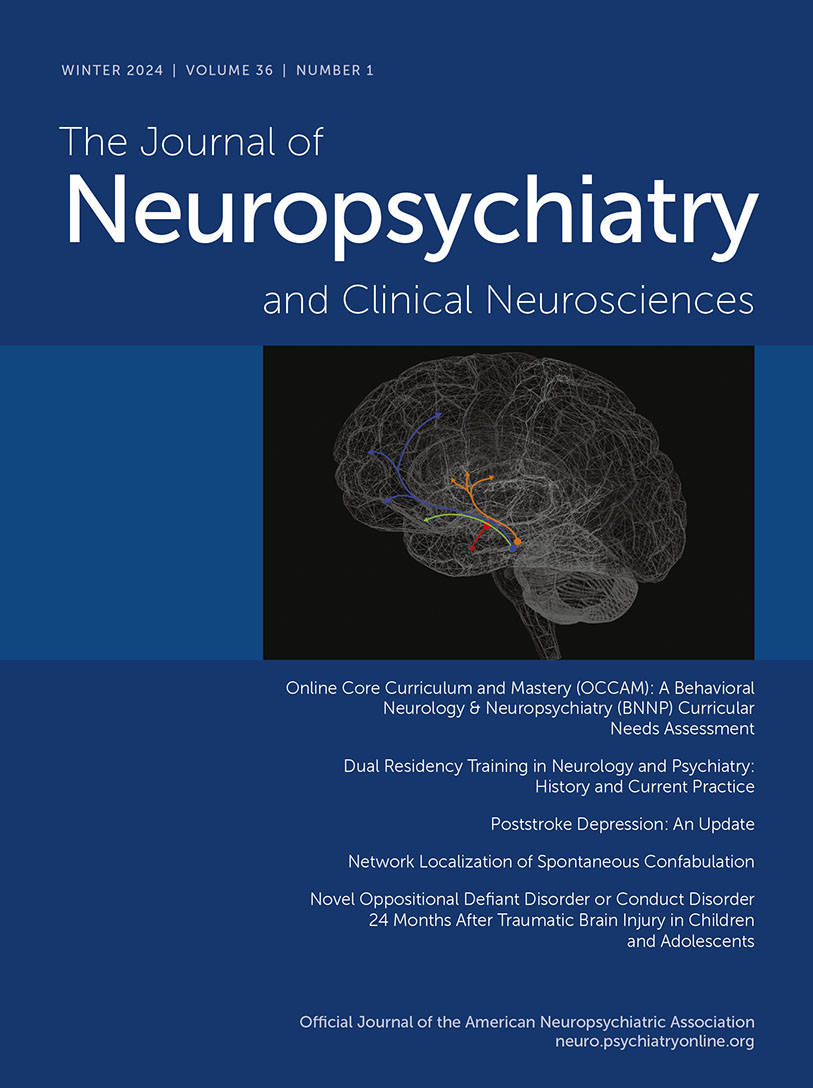The Journal of Neuropsychiatry and Clinical Neurosciences
- Volume 32
- Number 1
- January 2020
Editorial
Special Articles
Publication date: 30 August 2019
Pages4–13Objective: Whereas functional symptoms are common in Parkinson’s disease (PD), a parkinsonian syndrome may occasionally reflect a pure functional disorder (also named functional parkinsonism [FP]). This review aimed to decipher these entities to clarify ...
https://doi.org/10.1176/appi.neuropsych.19030058Publication date: 15 November 2019
Pages14–23Stroke services have been reconfigured in recent years to facilitate early intervention. Throughout stroke settings, some patients present with functional symptoms that cannot be attributed to a structural cause. Emphasis on fast diagnosis and treatment ...
https://doi.org/10.1176/appi.neuropsych.19030075Publication date: 17 October 2019
Pages24–32A dualistic mind-body understanding of functional neurological disorders (FNDs), also known as conversion disorders, has led to the view that the cause of the symptom should be either psychological (psychogenic) or physical (neurogenic-“organic”). One of ...
https://doi.org/10.1176/appi.neuropsych.19040089Publication date: 23 December 2019
Pages33–42The development and selection of optimal outcome measures is increasingly recognized as a key component of evidence-based medicine, particularly the need for the development of a standardized set of measures for use in clinical trials. This process is ...
https://doi.org/10.1176/appi.neuropsych.19060128Regular Articles
Publication date: 23 December 2019
Pages43–49Objective: The authors evaluated potential predisposing vulnerabilities and perpetuating factors among individuals with functional neurological disorder (FND) by using the novel Lifespan Negative Experiences Scale (LiNES), which assesses retrospective self-...
https://doi.org/10.1176/appi.neuropsych.19050121Publication date: 30 August 2019
Pages50–57Objective: Functional limb weakness is a common symptom of functional neurological disorder. Few controlled studies have examined possible predisposing factors to determine their specificity for this symptom. Methods: In this prospective case-control study, ...
https://doi.org/10.1176/appi.neuropsych.19050109Publication date: 30 August 2019
Pages58–66Objective: No gold-standard treatment exists for motor functional neurological disorder (mFND), and limited evidence has been found for the effectiveness of cognitive-behavioral therapy (CBT) in treating the disorder. This study examined sociodemographic ...
https://doi.org/10.1176/appi.neuropsych.19030067Clinical and Research Reports
Publication date: 30 September 2019
Pages67–72Objective: The purpose of this study was to determine whether patients with functional movement disorders (FMDs) differ in their internal versus external locus of control (LOC) and whether LOC in these patients affected disease severity, quality of life, ...
https://doi.org/10.1176/appi.neuropsych.18110290Publication date: 07 October 2019
Pages73–78Objective: Despite being a major cause of neurological disability, the neural mechanisms of functional movement disorders (FMDs) remain poorly understood. Recent studies suggest that FMD is linked to dysfunctional motor and prefrontal regions that could ...
https://doi.org/10.1176/appi.neuropsych.19030076Publication date: 07 October 2019
Pages79–84Objective: A growing interest in functional neurological disorders (FND) has led to the development of specialized clinics. This study aimed to better understand the structure and role of such clinics. Methods: Data were retrospectively collected from ...
https://doi.org/10.1176/appi.neuropsych.19040083Publication date: 30 September 2019
Pages85–89Objective: Despite promising research and consensus recommendations on the important therapeutic role of physical therapy for motor functional neurological disorder (FND), little is known about the feasibility and potential efficacy of implementing ...
https://doi.org/10.1176/appi.neuropsych.19030068Publication date: 05 November 2019
Pages90–94Objective: The aim was to provide preliminary feasibility, safety, and efficacy data for a personalized virtual reality-delivered mirror visual feedback (VR-MVF) and exposure therapy (VR-ET) intervention for functional neurological disorder (FND). Methods: ...
https://doi.org/10.1176/appi.neuropsych.19030071Publication date: 30 October 2019
Pages95–100Objective: Dysfunction in emotional processes is a hypothesized contributor to functional neurological disorders (FNDs), yet few studies have evoked real-time emotion during multimethod assessment incorporating subjective, behavioral, and ...
https://doi.org/10.1176/appi.neuropsych.19040084Opinion
Past Issues
View Issues Archive
Vol. 36 | No. 4

Vol. 36 | No. 3

Vol. 36 | No. 2
